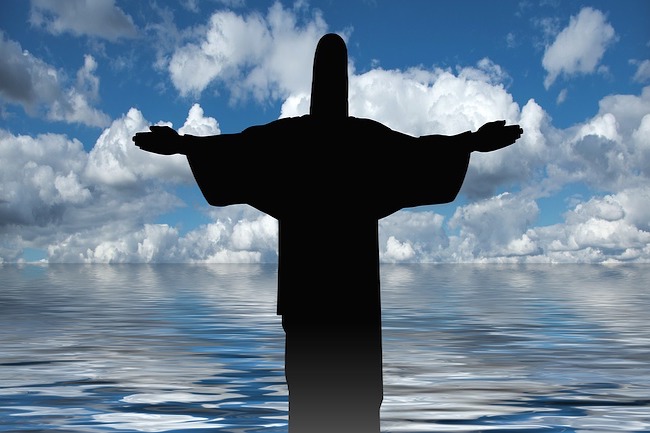Why I Am Not a Christian By Bertrand Russell originally published 1927
GNN Note – Published as a historical view point. We are followers of Jesus Christ it is He that is our King of kings, Lord of lords and Savior of all. / END
The Lecture that is here reproduced was delivered at the Battersea Town Hall on Sunday March 6, 1927, under the auspices of the South London Branch of the National Secular Society. It is issued in booklet form at the request of many friends. It should be added that the author alone is responsible for the political and other opinions expressed.
As your Chairman has told you, the subject about which I am going to speak to you tonight is ‘Why I am not a Christian’. Perhaps it would be as well, first of all, to try to make out what one means by the word ‘Christian’. It is used these days in a very loose sense by a great many people. Some people mean no more by it than a person who attempts to live a good life. In that sense I suppose there would be Christians in all sects and creeds; but I do not think that that is the proper sense of the word, if only because it would imply that all the people who are not Christians—all the Buddhists, Confucians, Mohammedans, and so on—are not trying to live a good life. I do not mean by a Christian any person who tries to live decently according to his lights. I think that you must have a certain amount of definite belief before you have a right to call yourself a Christian. The word does not have quite such a full-blooded meaning now as it had in the times of St Augustine and St Thomas Aquinas. In those days, if a man said that he was a Christian it was known what he meant. You accepted a whole collection of creeds which were set out with great precision, and every single syllable of those creeds you believed with the whole strength of your convictions.
WHAT IS A CHRISTIAN?
Nowadays it is not quite that. We have to be a little more vague in our meaning of Christianity. I think, however, that there are two different items which are quite essential to anybody calling himself a Christian. The first is one of a dogmatic nature—namely, that you must believe in God and immortality. If you do not believe in those two things, I do not think that you can properly call yourself a Christian. Then, further than that, as the name implies, you must have some kind of belief about Christ. The Mohammedans, for instance, also believe in God and in immortality, and yet they would not call themselves Christians. I think you must have at the very lowest the belief that Christ was, if not divine, at least the best and wisest of men. If you are not going to believe that much about Christ, I do not think you have any right to call yourself a Christian. Of course there is another sense which you find in Whitaker’s Almanack and in geography books, where the population of the world is said to be divided into Christians, Mohammedans, Buddhists, fetish worshippers, and so on; and in that sense we are all Christians. The geography books count us all in, but that is a purely geographical sense, which I suppose we can ignore. Therefore I take it that when I tell you why I am not a Christian I have to tell you two different things; first, why I do not believe in God and in immortality; and, secondly, why I do not think that Christ was the best and wisest of men, although I grant Him a very high degree of moral goodness.
But for the successful efforts of unbelievers in the past, I could not take so elastic a definition of Christianity as that. As I said before, in olden days it had a much more full-blooded sense. For instance, it concluded the belief in hell. Belief in eternal hell fire was an essential item of Christian belief until pretty recent times. In this country, as you know, it ceased to be an essential item because of a decision of the Privy Council, and from that decision the Archbishop of Canterbury and the Archbishop of York dissented; but in this country our religion is settled by Act of Parliament, and therefore the Privy Council was able to override Their Graces and hell was no longer necessary to a Christian. Consequently I shall not insist that a Christian must believe in hell.
THE EXISTENCE OF GOD
To come to this question of the existence of God, it is a large and serious question, and if I were to attempt to deal with it in any adequate manner I should have to keep you here until Kingdom Come, so that you will have to excuse me if I deal with it in a somewhat summary fashion. You know, of course, that the Catholic Church has laid it down as a dogma that the existence of God can be proved by the unaided reason. That is a somewhat curious dogma, but it is one of their dogmas. They had to introduce it because at one time the Freethinkers adopted the habit of saying that there were such and such arguments which mere reason might urge against the existence of God, but of course they knew as a matter of faith that God did exist. The arguments and the reasons were set out at great length, and the Catholic Church felt that they must stop it. Therefore they laid it down that the existence of God can be proved by the unaided reason, and they had to set up what they considered were arguments to prove it. There are, of course, a number of them, but I shall take only a few.




